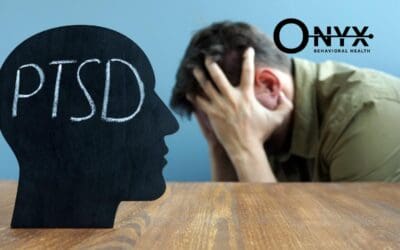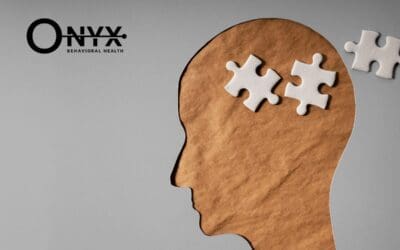Post-traumatic stress disorder (PTSD) is a trauma disorder that can happen after impactful experiences that affect individuals across the spectrum of age, occupation, and life history. It is not limited to the battlefields of war but extends to any corner of life...
Mental Health Blog

9 Signs of Emotional Trauma in Adults
Emotional trauma affects an astonishing 70% of U.S. adults having experienced at least one traumatic event in their lives. It originates from profoundly distressing or life-altering events that shatter a person's sense of security, leading to feelings of helplessness...
How Do You Know if You Have OCD
Obsessive-compulsive disorder (OCD) is a prevalent mental health condition, often enveloped in misconceptions and stereotypes. At its core, OCD is more than just being overly neat or afraid of germs; it's a complex disorder that significantly impacts the lives of...
Bipolar II: Everything You Need To Know
Bipolar disorder affects about 5.7 million adult Americans, as reported by the National Institute of Mental Health. Within this broad category is Bipolar II disorder. Unlike Bipolar I, Bipolar II features periods of high energy or hypomanic episodes mixed with times...
A Beginner’s Guide to Cyclothymic Disorder
Cyclothymic disorder is a term that is not as widely recognized as others within the bipolar disorder spectrum. This condition presents a milder form of emotional highs and lows, yet it significantly shapes the lives of those it touches. This beginner's guide aims to...
A Guide to the Connection Between Genes & Depression
Depression is one of the most significant challenges in mental health today, affecting approximately 280 million people worldwide. But what lies beneath the surface of this complex condition? Studies estimate the heritability of depression to be around 40-50%, and...
7 Long-Term Effects of Depression
Depression is an intricate condition, often misunderstood as mere sadness or a temporary emotional downturn. Yet, for those affected, it represents a profound and persistent disturbance in mood, thought, and overall well-being. Recognizing the long-term effects of...
An Intro to Emotions Anonymous (EA)
In the vast and intricate mental health landscape, finding a supportive community that resonates with personal experiences and offers a path toward healing is invaluable. Emotions Anonymous (EA) stands out as a beacon of hope for individuals grappling with emotional...
10 Examples of OCD Behaviors
Obsessive-Compulsive Disorder (OCD) is a complex mental health condition defined by unwanted thoughts and fears (obsessions) that compel repetitive behaviors (compulsions). These compulsions are efforts to alleviate the anxiety these thoughts provoke, leading to a...
The Difference Between Borderline Personality Disorder & Bipolar
Up to 40% of individuals with bipolar disorder receive an initial misdiagnosis. While this disorder shares specific symptoms with borderline personality disorder (BPD), its core characteristics and treatment approaches differ significantly. Misunderstanding these...
Common Bipolar Symptoms in Men
Stereotypes and misconceptions often surround men with bipolar disorder. They may feel social pressure to suppress their emotions or be wrongly perceived as excessively aggressive or irritable. Unfortunately, these stereotypes can hinder the process of diagnosis and...
The 3 Stages of Mania Explained
Mania is a psychological state characterized by intense and persistent enthusiasm, energy, and heightened mood. Different from your average elevated mood, manic episodes are often associated with bipolar disorder. Yet, it is a...













 Kendra Cemoin
Kendra Cemoin Michaela Welk, LMHC
Michaela Welk, LMHC Bunny Berman
Bunny Berman Tank
Tank Richard E. LoSardo, MD
Richard E. LoSardo, MD Christopher Payne
Christopher Payne Bernard Benjamin
Bernard Benjamin